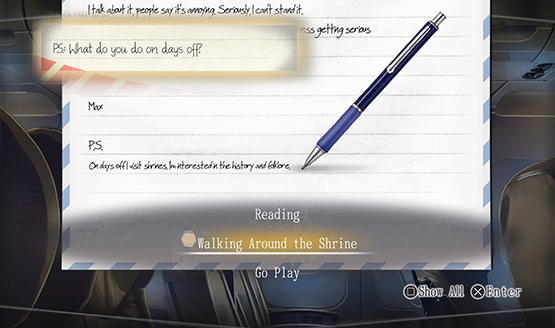When I was in junior high and high school, we sometimes developed penpal projects, where we would write physical letters to complete strangers across the world, sharing our experiences and cultures. By the time 1999 rolled around, the art of the letter was pretty much dead, and everyone turned to e-mail. In many ways, the friends we make on the Internet, especially the ones we…
-
Unique mystery
-
Plenty of replayability
-
Unique gameplay
-
Unclear dialogue choices
-
Little motivation to try not to fail an investigation
-
The underlying root of the story is rather weak
-
Not enticing enough to replay it





